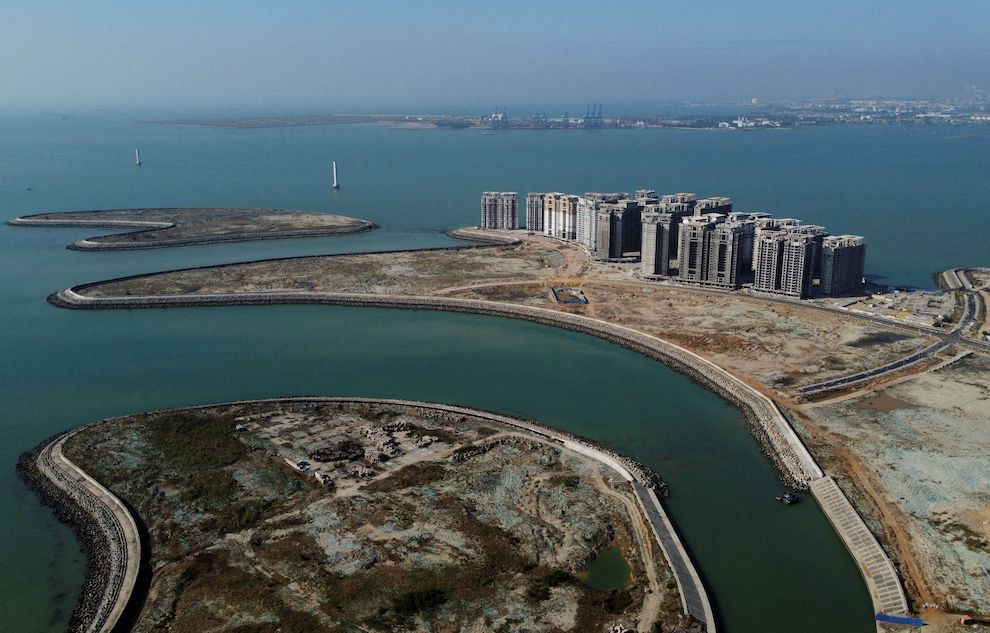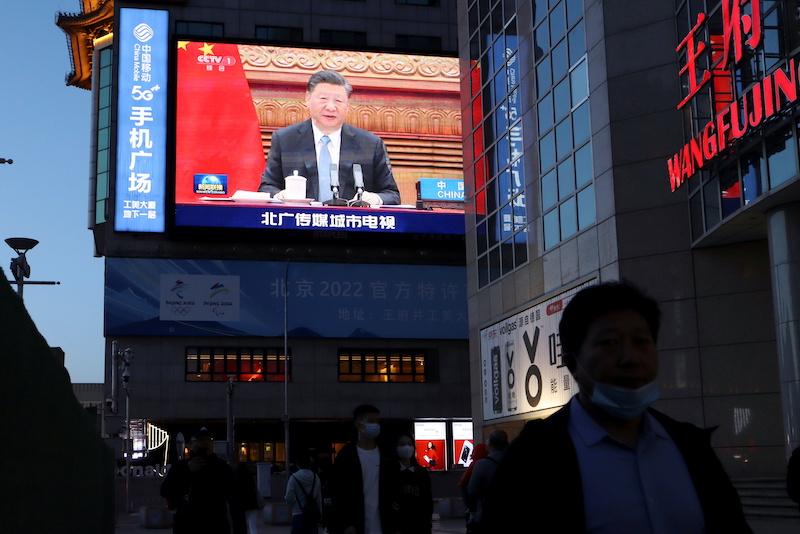Increasing deflationary pressures and a deepening real estate crisis have put the world’s second largest economy on the brink of “Japanization,” analysts have warned.
The term describes Japan’s 15-year period of low growth and deflation after the burst of an asset-inflated bubble in the late 1990s.
“Under the Xi administration, China probably shifted its attention away from economics,” said Hiroshi Wanatabe, Japan’s former top currency diplomat, who retains close ties with incumbent policymakers.
Also on AF: Fears Over Evergrande Debts Spurs Run on China Bank
Wanatabe recalls how Chinese policymakers eagerly studied ways to avert a Japan-style burst of an asset bubble that led to prolonged deflation and economic stagnation – until around 2015.
“Then they stopped. In the past seven to eight years, they seem to be ignoring everything they learned.”
China’s stalling inflation and property crisis was identified as among the biggest risks to global growth during the International Monetary Fund and World Bank meeting being held in Marrakech this week.
In its World Economic Outlook, the IMF cut China’s growth forecast for this year to 5.0% from 5.2% in April, and warned that its property sector crisis could deepen with global spillovers. It projects growth to slow to 4.2% next year.
Furthermore, China’s weak recovery and the risk of a more protracted property crisis could also dent Asia’s economic prospects, the IMF warned.
Asia’s economic outlook clouded
In its outlook, the IMF also cut next year’s growth estimate for Asia to 4.2% from 4.4% projected in April, and down from 4.6% forecast for this year.
“Any time China slows, it has a bearing on the global economy, notably …Asia,” Krishna Srinivasan, director of the IMF’s Asia and Pacific Department, told a briefing in Marrakech on Friday.
The conflict in the Middle East could also push up inflation in the region, Srinivasan added.
In a blog on the region’s outlook, the IMF also noted that China’s post-lockdown economic boost lost momentum earlier than expected.
Meanwhile, the strength of the US economy has offered less support to Asia than in the past because it has been focused on the service sector, which does not fuel demand for exports, the lender said.
“In the near term, the sharp adjustment in China’s heavily indebted property sector and the resulting slowdown in economic activity will likely spill over to the region, particularly to commodity exporters with close trade links to China,” it said.
“On the downside, a more protracted real estate crisis and limited policy response in China would deepen the regional slowdown.”

Japan worried on China risk
Growth concerns around China have particularly concerned Japanese policymakers partly since a prolonged slump in Japan’s biggest trading partner will deal a huge blow to their export-reliant economy.
“What’s fast emerging is the risk of China slipping into deflation, or the ‘Japanization’ of its economy,” Bank of Japan (BOJ) board member Asahi Noguchi said on Thursday.
“It’s not clear yet whether China is heading toward a situation similar to Japan. But it’s true China’s real estate sector – the backbone of its economy – is slumping, youth job losses are rising and inflation is weakening,” he said in Japan.
Data showed on Friday China’s consumer inflation was flat in September, missing forecasts for a 0.2% gain, highlighting the deflationary pressure on the country, even as many other countries combat sky-high inflation.
Back during its deflationary period from 1998 to 2013, Japan saw core consumer prices fall 0.2% on average, as slumping property prices hit bank balance sheets and cooled investment.
Silver linings
Even so, there are differences between what is happening in China and the experience of Japan. For one, China’s balance sheet stress and debt overhang are contained to the real estate sector, notably among troubled developers and local provinces.
That contrasts with Japan, where slumping property prices left banks nationwide with a huge pile of bad loans, causing a broad-based credit crunch that prolonged the economic downturn.
For now, the IMF does not see a big risk of China sliding into deflation with inflation seen accelerating, backed by a recovery in demand, IMF’s Srinivasan said.
But he urged Beijing to take measures, such as supporting the restructuring of distressed developers and offering guidance to local provinces, to avoid the troubles from broadening.
“Overall, we believe that China can avoid a prolonged period of sub-par growth with the right policies,” Srinivasan said, when asked about the chance of “Japanization” in China.
“The point we’re trying to make is that it’s important to address the property crisis head on, so that it doesn’t become a bigger problem.”
- Reuters, with additional editing by Vishakha Saxena
Also read:
Economic Risks Mount for Asia as Israel Declares War on Hamas
China’s Private Real Estate Giants Teeter Near Collapse
China’s Trade Data Slightly Better in September, Customs Says
China Births Slump to Record Low, Prompting Economic Warning
Typhoons, Landslides, Sandstorms Cost China $42bn This Year
China’s Property Sector Will Remain Weak For Years: Goldman
Israel-Hamas War Casts Long Shadow Over China’s BRI Stocks























